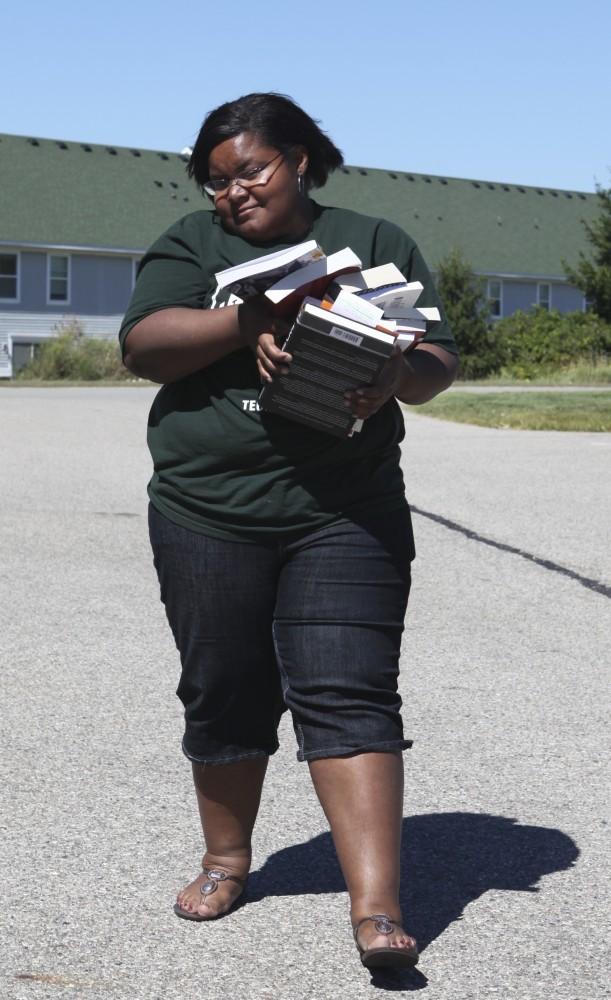UBS holds off on textbook rental

Student Shannon Gibson struugles with the weight her teachers have put in her arms.
Aug 30, 2010
1“We believe students want us to rent books,” said Jerrod Nickels, manager of the University Bookstore in the Kirkhof Center. “But when we do it, we want to do it well, and we want it to legitimately be a better deal for students.”
Nickels said his research has shown that students benefit more from purchasing used books than renting them. He used a $100 textbook as an example, saying that a textbook rental service will charge $40 to $50 for rental. However, if the books return in less than pristine condition, with highlighting or notes, the service will charge the balance for the book.
“Depending on the edition and the condition of the book, if we sell you a used copy, our price would be $75 – most used books are about 25 percent less than the new price,” he said. “If the book is used next semester, we pay half the new price of the book. So a student would get $50 back.”
For textbooks not used in the next semester, Nickels said the bookstore will give students up to one-third of the original cost if the edition is still current.
In textbook rental programs, students who rent books opt out of reselling textbooks at the end of the semester. Rentals also do not guarantee consumable materials that come with the purchase of a new book: software, access codes or workbooks. Students might need to buy these in addition to their rented materials.
However, some GVSU students have expressed interest in at least having the option to rent a textbook as opposed to buy it.
“I always feel a bit foolish buying a book for $50 and getting back $5, so a rental option would be really nice for classes that I know I will never use (the book) again,” said student Sean Francis.
According to a statement released Aug. 3 by the National Associate for College Stores, about one-half of the association’s member bookstores offer textbook rental services – a steep increase from 200 to 300 stores last fall.
Considerable start-up costs may account for the rocky beginning last year for textbook rental programs. For rental programs to succeed, faculty members must commit to using the same textbook for four to six semesters, while bookstores need to balance money for administration, maintenance, inventory and storage.
Despite the many drawbacks behind rental programs, The College Store on the Michigan State University campus offers a rental program with the slogan, “Rent every book. Seriously, every class, every book.”
“People are very excited about having that opportunity to have that option,” said Kathy Stone, general manager for The College Store. “This is an exciting time for all of us.”
While The College Store has committed fully to textbook rental, Stone said it has not experienced any of the common drawbacks.
Although this is the first year the store will offer all its textbooks for rental, Stone said the bookstore has met great success during the past three years as a hybrid program.
This year, many college bookstores will offer hybrid programs. The hybrids provide rental for only entry level courses in which the books are less likely to change from year to year, giving the bookstore greater security in its products.






















